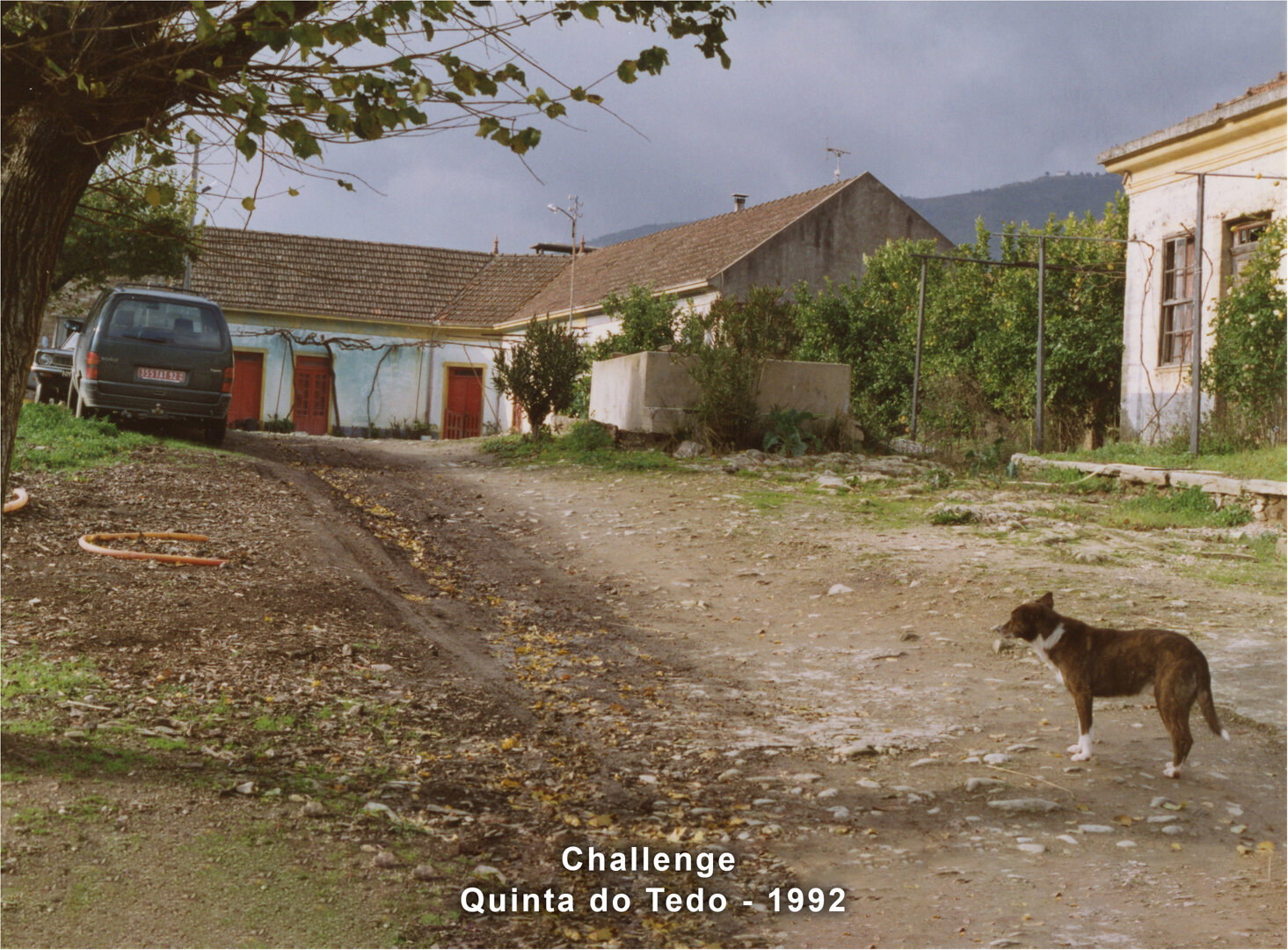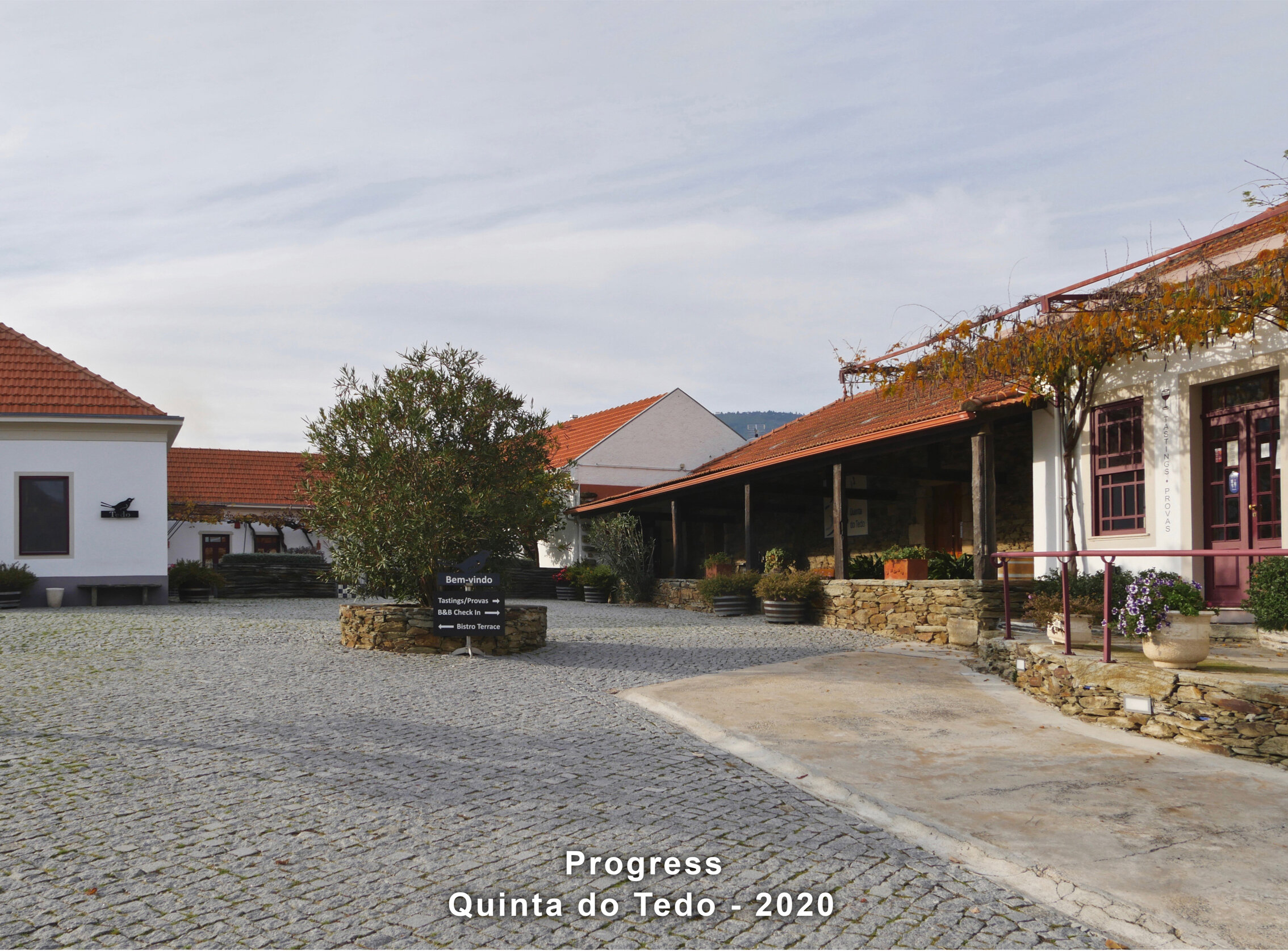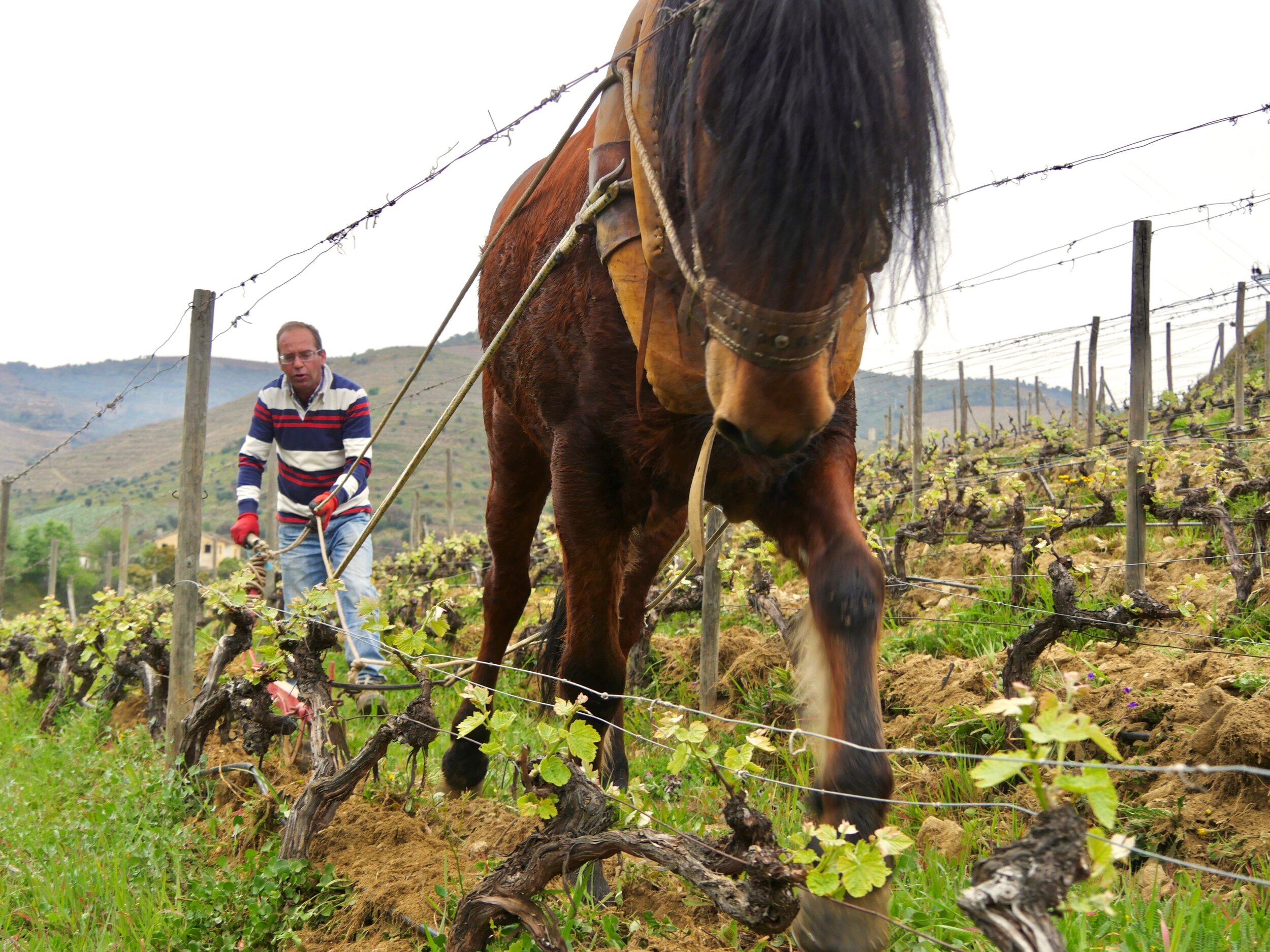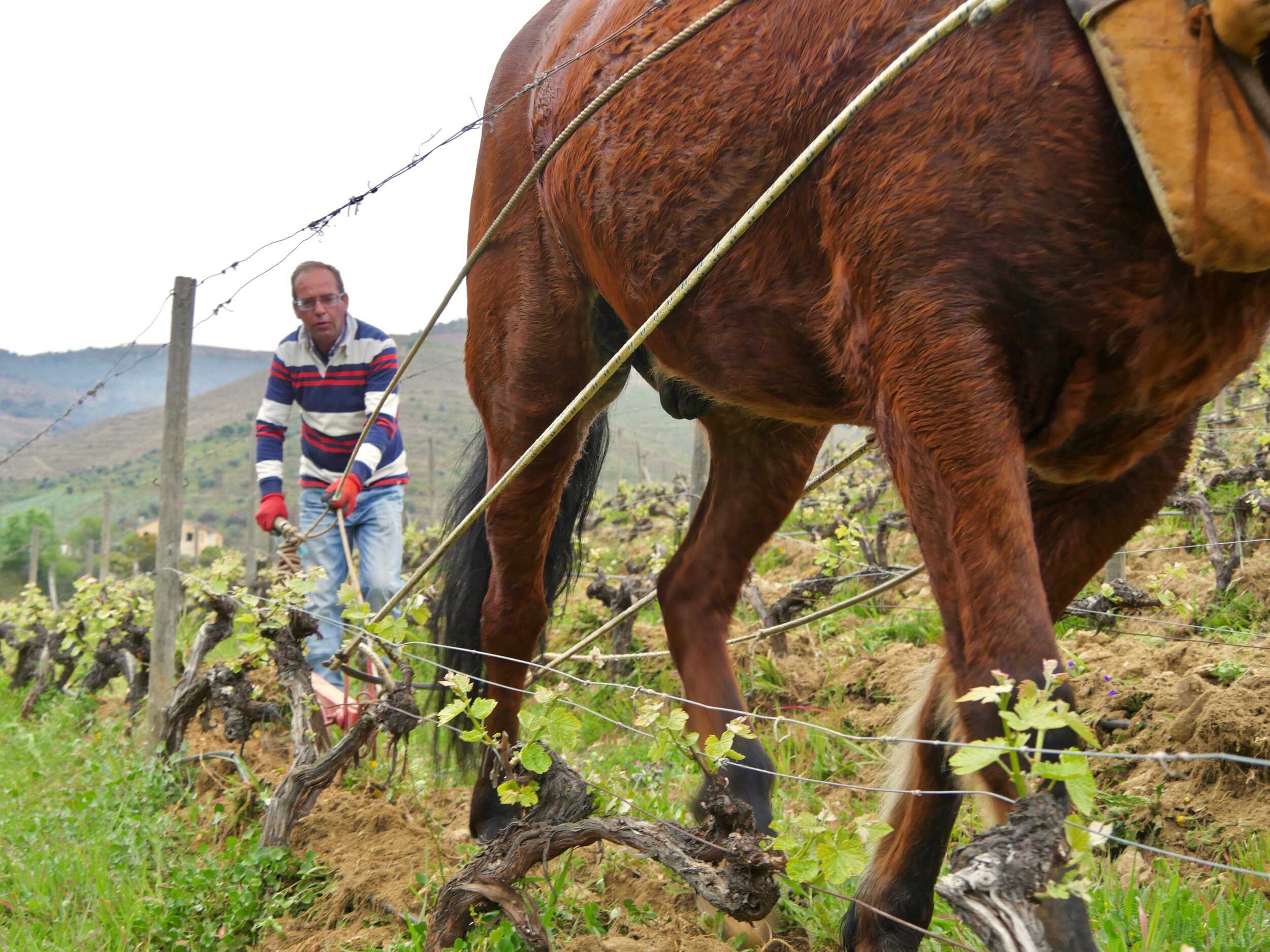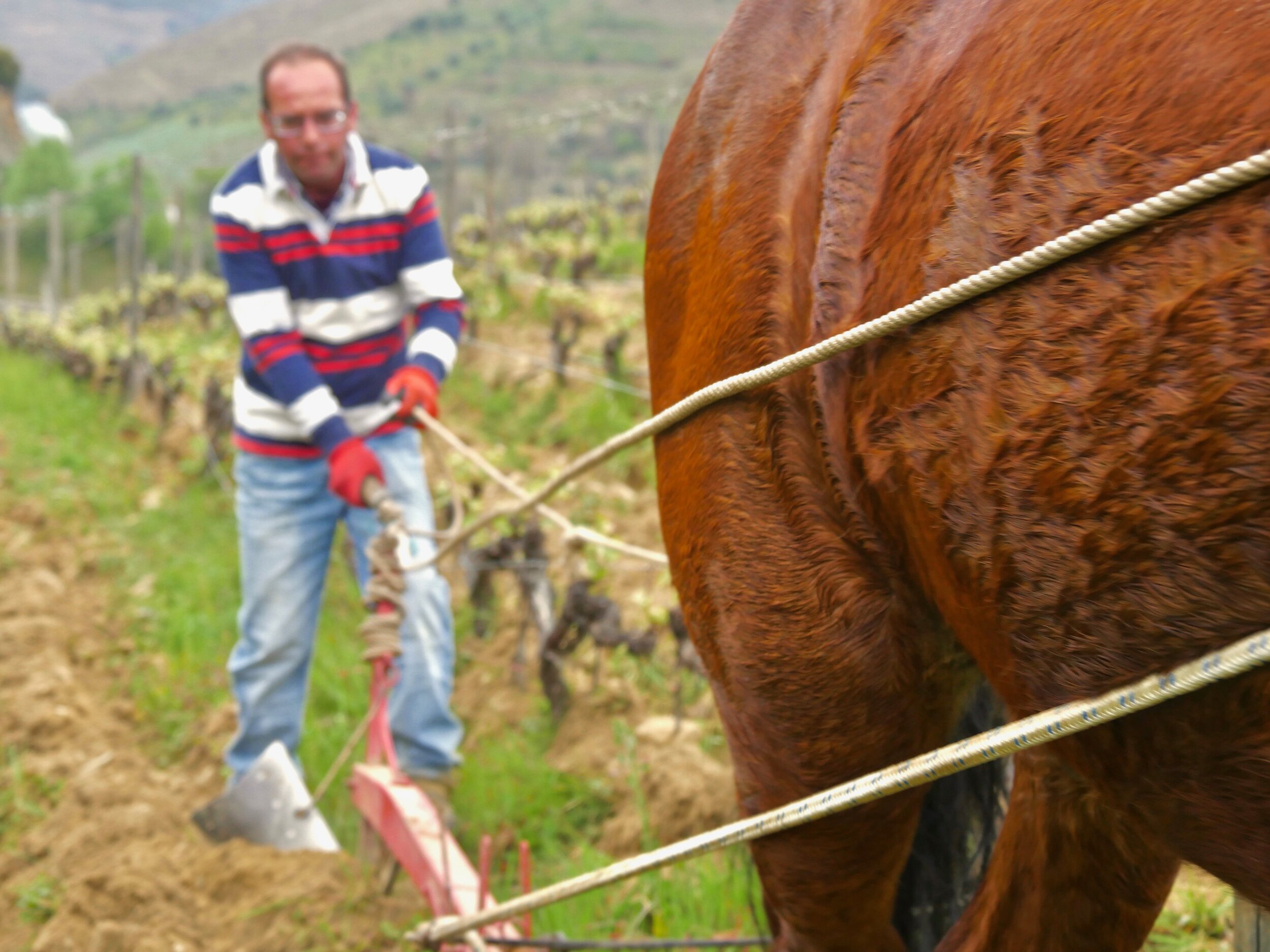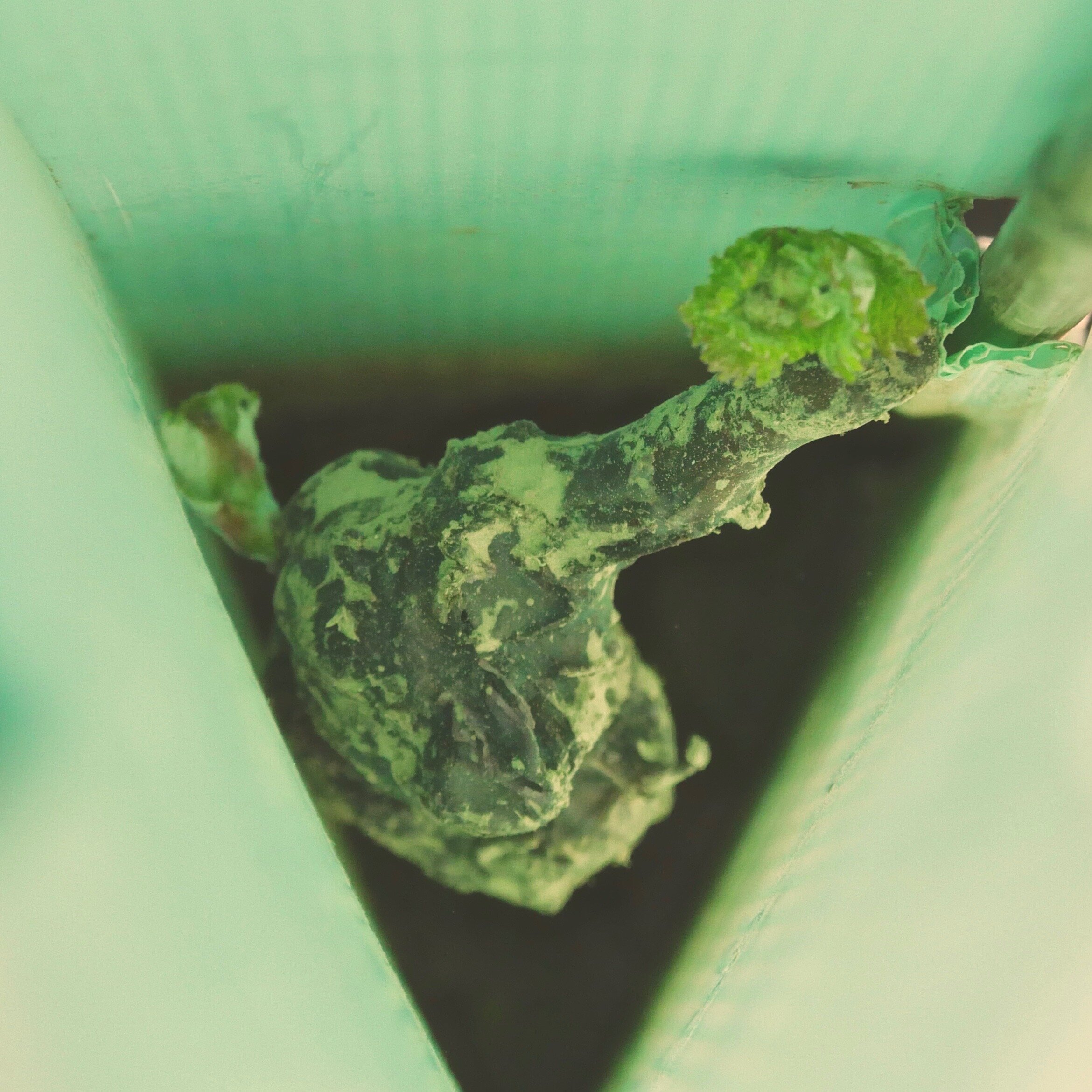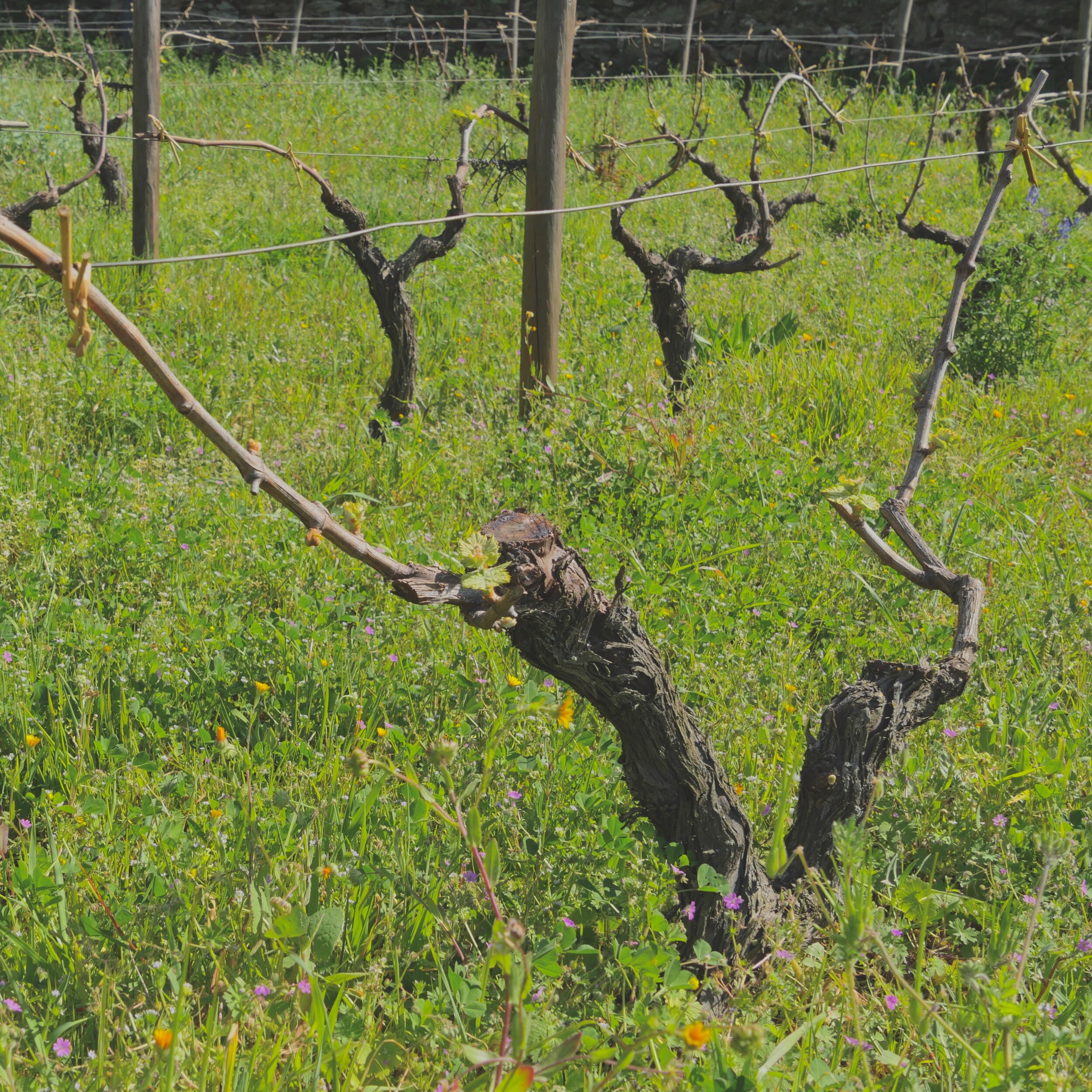In a recent interview for Quinta do Tedo’s long-feature film (to be released in April!), Vincent reflects on the beauty of Douro Valley that attracted him and Kay to buy Quinta do Tedo in 1992. He then hesitates before recalling the “garbage-like” state the property and its surroundings were in back then.
Living most of the year in water-scarce Northern California where a dynamic environmental movement has been underway since the 60s, sustainability has always been ingrained in our Bouchard family values to live and work by anywhere in the world. However, Portugal in the early 90s still resembled a developing country and the push to go-green was seen more in line with governmental legislation than each individual’s responsibility.
So, to set an example without stepping on the cultural norms of the country we were so warmly welcomed into, my parents “used” my brothers’ and my youthful servitude on the weekends to pick sardine cans, cigarette packs, plastic bags, food wrappers and even refrigerators off the roadsides around Quinta do Tedo.
Paolo, Joe and I were 8, 4 and 6 years old and dressed in yellow rain jackets to protect us from Spring showers and potential accidents with Sunday church-goers, some of whom slowed down, looking perplexed, or even stopped to ask what the heck we were doing?
We were simply, although perhaps not so discreetly, nurturing sustainability into the ethos of our family business, Quinta do Tedo.
Over the years, we continued to work with locals (two of whom are still part of our essential vineyard team), improve their work conditions, clean up the estate and grow our own produce to cook for our team. We eventually installed a water recycling unit, registered our land and the Tedo River as an Ecological Reserve, and, in 2009, invested in the three-year conversion of our 14 ha of vineyards to Certified Organic.
However, as the quality of organic wines 15 years ago was considered inconsistent or even compared to vinegar by more disparaging traditionalists, we modestly described our vineyards as “traditionally-farmed with minimal intervention”. After all, that was how Douro Valley’s steep, narrow, terraced vineyards were historically cultivated - by hand and without chemical pesticides, herbicides or fertilizers many farmers could not afford.
Vincent recalls growing organic grapes in Douro Valley’s hot, arid climate was not so hard, compared to other more humid wine regions. Here, rainfall is concentrated in the winter when the dormant vines are protected, soils have good filtration, native grapes varieties’ roots grow deep to procure their own water, and strong afternoon winds minimize humidity and the pests and diseases it can nurture.
Fast-forward 10 years from 2011, when Quinta do Tedo’s vineyards officially became Certified Organic, things are different. Namely, the climate is less predictable, with shorter, wetter winters and longer, hotter summers. Needing to adapt for the long-term, we decided not to hire a Weather God nor Climate Engineer, but Angelo Ribeiro - our new Viticulture Manager!
Angelo comes from nearby Barcos, studied Viticulture and Enology in Viseu, has completed two harvests at Quinta Nova da Nossa Senhora do Carmo (just opposite Douro River from us) and, while finishing his Agricultural Engineering degree, started his career at Quinta do Tedo.
Angelo says “the whole process of growing great grapes starts with good pruning” (his pet vineyard task). He and our vineyard team saved pruning the vines in Tedo’s hottest and driest microclimates for last. This will delay their vegetative regrowth to ensure their grapes mature along the same timeline as those from vines that grow slower in Tedo’s cooler microclimates.
“We’ve also just finished replanting nearly 4,000 new Touriga Franca and Tinta Roriz “feet”, grafted onto a specific rootstock that is well-adapted to Tedo’s dryer, rockier soils”, Angelo says. He adds that “it is arguably more important to choose the right rootstock than grape variety to ensure the vine’s long-term viability in the microclimate where it is planted.”
While Angelo loves working old vines (for example, Tedo’s 0.5 ha Savedra parcel that is 65+ years old and composed of 24+ varieties), his favourite grape variety is Touriga Nacional - “perhaps the most unruly to train in the vineyard, but when done right, it adds some of the most feminine and complex layers to Tedo’s Douro DOC Red Wines and Vintage Ports”.
Angelo admitted that he saw “terroir” more as a cliché marketing term until he came to Tedo. Guided by our terroir-driven winemaker, Jorge Alves, through our small estate’s wonderful diversity of microclimates and microterroirs, Angelo has come to appreciate the true meaning of “terroir” firsthand.
“Every parcel needs to be treated differently, as every year needs to be treated differently, especially in organic vineyards”, Angelo says. He walks our vineyards every day and is an invaluable resource in making quick and important decisions in response to ever-changing vineyard and climatic conditions.
Angelo recalls “2017 was a very warm, dry year in Douro Valley, which immensely minimized vineyard pests and diseases, while 2018 was hot, humid and brought inconsistent rainstorms that complicated farmers’ decisions of when to spray their organic fungicide”. This copper-sulfate- lime mixture has been used since the 1800s to fight bacteria that could deplete an entire harvest, if uncontrolled.
Speaking to Angelo between strong-growing vines under the bright morning sun, while Cariço (our motorless tractor that whinnies) and Felipe (aka “Horse Whisperer”) ploughed the soils, birds chirped and colourful wildflowers swayed in the background, I found it hard to fathom the future challenges our vineyards and livelihoods face.
But, I rest assured our Team Tedo is now one-Viticulture-Manager-stronger to persevere in our commitment to sustainability for the long-term health of the environment and future generations.


